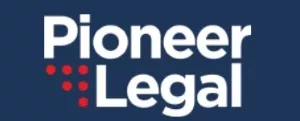The Pension Fund Regulatory and Development Authority ("PFRDA"), issued a notification dated December 19, 2023, whereby it notified the PFRDA (Framework for Prevention and Reporting of Fraud under NPS Architecture) Guidelines, 2023, ("PFRDA Reporting of Fraud Guidelines") to be complied with by the intermediaries of the national pension system ("NPS") registered under the Pension Fund Regulatory and Development Authority Act, 2013, ("PFRDA Act"). The key features of the PFRDA Reporting of Fraud Guidelines are mentioned below:
a. Objective:
The PFRDA Reporting of Fraud Guidelines have been formulated with the objective of: (a) fraud prevention; (b) compliance with the PFRDA Act; (c) protection of subscribers; and (d) regulatory compliance.
b. Applicability:
These guidelines are applicable to all intermediaries registered with the PFRDA Authority within the NPS architecture. The term intermediary is defined under Section 2(g) of the PFRDA Act ("Intermediary").
These intermediaries essentially include: (a) trustee bank; (b) annuity service providers; (c) retirement advisors; (d) pension fund advisor; (e) custodian; and (f) point of presence ("PoP")-entities appointed by PFRDA to provide services to all citizens of India, to open and operate NPS account; (g) such other person or entity connected with collection, management, recordkeeping, and distribution of accumulations.
c. Definition of fraud:
These guidelines provide an inclusive definition of the term "fraud" to include any act or omission or distortion or concealment of fact or suppression of information or practising deception or any act of undue influence, misrepresentation with a view to cause any unjust enrichment or gain to any person (whether monetary or otherwise) or any wrongful loss or any detriment suffered by another, without there being any necessity to prove any such gain or loss. II. REGULATORY UPDATES 1. Introduction of PFRDA (Framework for Prevention and Reporting of Fraud under NPS Architecture) Guidelines, 2023
The definition of fraud provides a non-exhaustive list of instances of fraud for reference. The guidelines also provide an illustrative list of classification of fraud, which includes (a) breach of trust; (b) fraudulent encashment; (c) cheating and forgery; (d) embezzlement or misappropriation of funds, securities, supplies, or other assets; (e) forgery of alteration of any document, record, or account or any destruction of documents; (f) incorrect financial reporting with a view to deceive; (g) misutilization of office fund for personal purposes; (h) unauthorised destruction, removal, or inappropriate use of words; (i) making false written or oral statement or representations with respect to organisation activities.; (j) disclosing confidential and proprietary information to unauthorised parties; (k) improprietary in handling o reporting of financial or money transaction; (l) profiteering as a result of insiders' knowledge of an organisations' activities; (m) disclosing confidential and proprietary information to unauthorised parties; (n) bribery or kickbacks; (o) wilful suppression of facts/deception in matters of appointment; placements; or submission of report; (p) omitting to give true and correct picture of material information to unauthorised parties; (q) any other category of fraud not coming under this head.
Another crucial component of the definition of fraud under these guidelines is that there is no requirement of any financial, non-financial harm or loss, having been caused to any person, under these guidelines on account of any fraudulent activity.
d. Major compliances for the Intermediaries:
The guidelines mandate that the Intermediaries follow all applicable laws, rules, and regulations under the PFRDA Act.
The entities under NPS architecture, subject to board approval are required to establish an Anti-Fraud Policy for fraud risk management and investigation. This policy should adhere to governance standards and accountability, and consider the organizations' structure, services, and technology. A comprehensive approach is to be adopted to identify, measure, control, and monitor fraud risk, with tailored risk management policies and procedures across the organization.
Originally published 03 April 2024
The content of this article is intended to provide a general guide to the subject matter. Specialist advice should be sought about your specific circumstances.




